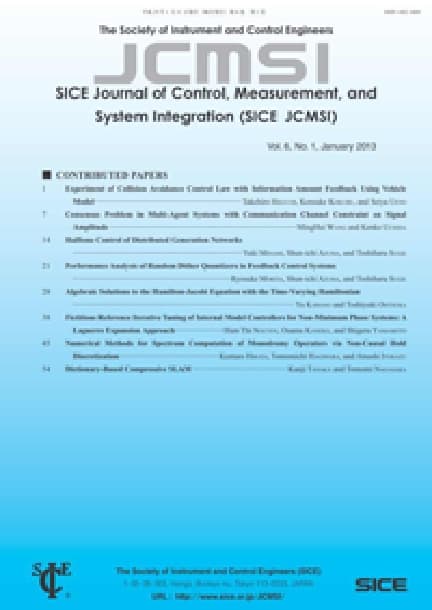Bandwidth Maximization of Disturbance Observer Based on Experimental Frequency Response Data
Xiaoke WANG, Wataru OHNISHI, Takafumi KOSEKI
pp. 257-264
DOI:
10.9746/jcmsi.13.257Abstract
A disturbance observer (DOB) has been widely employed in industrial field due to its simplicity and effectiveness in disturbance rejection. This paper focuses on systematic bandwidth-maximized DOB design by frequency response data-based convex optimization. The transformation process from original non-convex optimization to convex optimization has been formulated. Simulation results have verified the feasibility and generality of the proposal and shown that the designed DOB is able to achieve good disturbance rejection performance.
Readers Who Read This Article Also Read
SICE Journal of Control, Measurement, and System Integration Vol.13(2020), No.6
SICE Journal of Control, Measurement, and System Integration Vol.13(2020), No.6
SICE Journal of Control, Measurement, and System Integration Vol.13(2020), No.6









